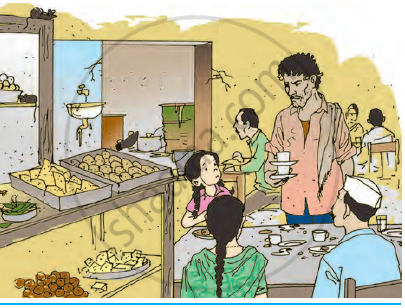Advertisements
Advertisements
प्रश्न
How does vaccination prevent diseases?
उत्तर
A vaccine contains a killed or weakened disease causing microbe that is responsible for infection. Because the germ is killed, it cannot make the person sick. When a person receives a vaccine, the body reacts by producing antibodies in defence. The antibodies remain in the blood for long and destroys the germs of a particular disease. In other words, vaccines expose people safely to germs so that they can fight with the same germs in future against its specific disease.
APPEARS IN
संबंधित प्रश्न
Name the methods in which vaccine’s are prepared, giving the name of one disease for which each type of vaccine is used
What are antibiotics?
When your friends fall while playing and get hurt, does anyone tell you, ‘Don’t go near them, you will also get hurt’?
When is it that you are told not to go near a sick person, not to use their utensils for eating or drinking; not to use their hankies, towels or clothes?

What do you see in the picture below ?
What are the mediums of the spread of diseases?
Tuberculosis is caused by the bacterium ______.
How the diseases are transmitted from one person to the other person?
How the diseases are transmitted from one person to the other person?
How the diseases are transmitted from one person to the other person?
